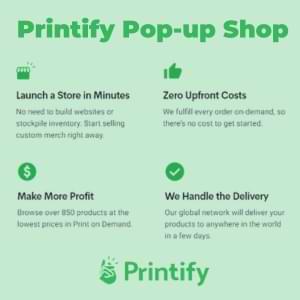Small Business Marketing Strategies To Take Your Small Business To The Next Level!
Are you a small business owner looking to gain an edge in the marketplace? Do you have a subconscious desire for power and success? If so, then mastering marketing strategies is crucial for your business’s growth.
Marketing is not just about selling products or services; it’s about creating an identity that sets your business apart from competitors. It involves understanding your target audience, crafting engaging content, building relationships with customers, and leveraging various platforms to reach them.
In this article, we’ll explore ten essential marketing strategies that small businesses should implement to achieve success. By following these tips, you’ll be able to increase brand awareness, generate leads, and ultimately drive sales.
Developing a Unique Brand Identity for Your Small Business
You’re crafting your small business’s personality, like creating a unique outfit that stands out in a sea of plain t-shirts. Developing a unique brand identity is one of the most essential marketing strategies for small businesses.
Why? Because it helps you stand out from competitors and attract your target audience. Your brand identity includes everything from your logo to the tone of voice in your messaging. It should be consistent across all platforms, including social media, website, and print materials.
By creating a cohesive image, you build trust with potential customers and increase brand awareness. To develop an effective brand identity, start by defining what makes your business unique. What sets you apart from other companies in your industry?
Think about your values, mission statement, and ideal customer. Once you have a clear understanding of these elements, work with a graphic designer or marketing expert to create visual assets that reflect them.
By investing time and resources into developing a strong brand identity, you’ll set yourself up for long-term success in the competitive world of small business marketing.
Local Business Market Research
To really understand your potential customers and what they want, you’ll need to conduct some market research. This is an essential step in any small business marketing plan. By conducting market research, you can gain valuable insights into your target audience’s needs, preferences, and behaviors.
Here are four ways in which conducting market research can help your small business marketing strategy:
- Identify new opportunities: Market research can help you identify gaps in the market that your business could fill. This could involve developing a new product or service that meets an unmet need.
- Understand customer behavior: By analyzing customer behavior through surveys or focus groups, you can better understand how potential customers make purchasing decisions.
- Evaluate competition: Competitive analysis is an important part of any marketing plan. Market research can help you identify strengths and weaknesses of competitors in the same industry.
- Refine messaging: Through market research, you can test different messaging strategies to see which resonates best with your target audience.
Incorporating digital marketing tactics into your small business marketing plan is also crucial. Social media platforms such as Facebook and Instagram offer cost-effective ways to reach a wider audience. By leveraging data from social media campaigns and website analytics, you can track the effectiveness of your digital marketing efforts.
By conducting thorough market research and incorporating digital marketing tactics into your overall strategy, you’ll be well on your way to developing effective marketing strategies for small businesses that resonate with your target audience. Remember, understanding your customers’ needs is key to building long-term relationships with them and ultimately driving sales.
Online Marketing: Utilizing Social Media
If you’re looking to take your marketing to the next level, incorporating social media into your plan can be the cherry on top to really make it pop. Social media platforms like Facebook, Twitter, and Instagram offer a unique opportunity for small businesses to connect with their customers in a way that’s both personal and effective.
By using social media, you can create an online presence that not only showcases your products or services but also engages with your audience. One of the best ways to use social media is by creating a marketing campaign that targets your ideal customer. For example, if you sell handmade jewelry geared towards women ages 25-35, you could create Facebook ads that target that specific demographic.
This will help ensure that your message is being seen by people who are most likely to be interested in what you have to offer. By utilizing this approach along with other tactics like posting regularly and engaging with followers through comments and direct messages, you’ll be able to build a loyal following on social media.
Incorporating social media into your marketing strategy can do wonders for your small business. Not only does it provide an opportunity for increased brand recognition and engagement, but it also allows for cost-effective advertising options like Facebook ads. If done correctly, using social media can help take your business to new heights and bring in more revenue than ever before!
Create Engaging Content
Crafting engaging content on social media is a powerful content marketing tactic for small businesses. By creating high-quality and visually appealing posts, you can attract potential customers to your brand and build a strong relationship with them. Incorporating storytelling, humor, or emotion in your content can help evoke a response from your audience and make them more likely to engage with your brand.
To create engaging content, it’s important to understand what resonates with your target audience. Conduct market research to determine what types of posts they respond well to and tailor your approach accordingly. Utilize different forms of media such as videos, images, infographics or blog posts to keep things fresh and interesting.
Incorporating engaging content into your digital marketing strategy is one of the best practices for small businesses looking to grow their online presence. By using these tactics effectively, you can not only increase engagement rates but also improve brand awareness and drive traffic to your website.
Remember that consistency is key when it comes to crafting engaging content on social media. Stay active on all platforms where your audience spends time and provide value through each post you publish.
Email Marketing: Building an Email List
 You know that feeling of excitement when you open your email and see a personalized message from your favorite brand? Well, it’s time to start building an email list so you can evoke that same emotion in your audience and strengthen your relationship with them.
You know that feeling of excitement when you open your email and see a personalized message from your favorite brand? Well, it’s time to start building an email list so you can evoke that same emotion in your audience and strengthen your relationship with them.
Email marketing is one of the most effective small business marketing strategies because it enables direct communication with your customer base. By building an email list, you’ll be able to keep your customers up-to-date on promotions, new products, or upcoming events.
Here are four ways to build an email list and maximize the impact of your marketing efforts:
- Add a sign-up form on your website: Make sure visitors to your website have the option to opt-in for emails.
- Offer incentives: Reward subscribers who sign up with exclusive discounts or freebies.
- Use social media: Promote signing up for emails through social media posts and ads.
- Host events: Collect email addresses at in-person events by having attendees sign up for newsletters or raffles.
Remember that building an email list is just the first step. To make sure customers stay engaged, personalize messages based on their interests and behaviors. Don’t bombard them with too many emails or irrelevant content.
Keep a consistent schedule and provide value in each message sent. With these tips, you’ll be on track to creating successful email marketing campaigns that help take your small business to new heights.
Creating an SEO Strategy for Your Small Business
Maximize your online presence and attract more traffic to your website by creating an SEO strategy for your small business. Search engine optimization (SEO) is the process of optimizing your website so that it ranks higher on search engines like Google, Bing, and Yahoo. By utilizing SEO techniques, you can increase the visibility of your website and drive more traffic to it.
The first step in creating an effective SEO strategy is conducting keyword research. This involves identifying the most relevant keywords for your business and incorporating them into your website’s content. By doing so, you can ensure that search engines understand what your site is about and rank it accordingly.
Additionally, optimizing your website’s meta tags, header tags, and URL structure can further improve its ranking on search engines. To maximize the effectiveness of your SEO strategy, it’s important to stay up-to-date with the latest trends and best practices in the field.
As search algorithms continue to evolve, staying informed about new developments will help you adapt and refine your approach over time. By investing in a strong SEO strategy for your small business, you can gain a competitive edge online and attract more customers to your brand without breaking the bank on expensive advertising campaigns.
Developing a Mobile-Friendly Website
If you want to capture more mobile users and increase your website’s visibility, it’s time to make sure your site is mobile-friendly. With so many people using their smartphones to browse the internet, having a site that is optimized for mobile devices can make all the difference in attracting potential customers.
Amazon understood this when they redesigned their website for mobile devices, resulting in a 15% increase in sales. Developing a mobile-friendly website means optimizing your design and content for smaller screens and touch-based interactions. You’ll want to ensure that your landing pages load quickly and are easy to navigate on a phone or tablet.
This includes making sure that any images or videos are properly sized and compressing files as needed for faster loading times. Additionally, incorporating relevant keywords into your content can improve search engine optimization (SEO) and help potential customers find you online.
Incorporating online marketing strategies for small businesses requires keeping up with the latest trends in digital marketing. Developing a mobile-friendly website is just one piece of the puzzle, but an important one nonetheless. By creating a site that caters to the needs of mobile users, you’ll be able to reach more people and potentially increase conversions.
Don’t underestimate the power of having a strong online presence — it can be the key to success in today’s digital world!
Creating an Influencer Marketing Strategy
Get ready to boost your brand’s visibility and engagement with the power of influencer marketing! This strategy involves partnering with other businesses or individuals who have a large following on their social media accounts. By collaborating with them, you can reach an audience that may not have been exposed to your small business before.
To create an effective influencer marketing strategy, start by identifying influencers who align with your brand’s values and target audience.
Once you’ve found potential partners, reach out to them and propose a collaboration idea. This could include sponsored posts or giveaways that will help promote both their account and your small business.
Incorporating influencer marketing into your marketing initiatives can be a game-changer for small businesses looking to increase their online presence. With careful planning and execution, working with influencers can lead to increased engagement, brand awareness, and ultimately more sales for your business.
Leveraging Paid Ads for Brand Awareness
Now it’s time to level up your advertising game by using paid ads – this section will show you how. Leveraging paid ads can help your business reach a wider audience and increase brand awareness. However, before diving into the world of paid advertising, it’s important to consider your marketing budget.
One popular platform for advertising on social media is Facebook. With over 2 billion active users, advertising on Facebook can be an effective way to reach your target audience. You can set specific targeting criteria such as age, location, interests, and more. Additionally, with Facebook’s pixel tracking feature, you can track conversions and sales from your ads.
Another way to leverage paid ads is through search engine results. By bidding on keywords relevant to your business using keyword research tools like Google AdWords or Bing Ads, you can appear at the top of search engine results pages (SERPs). This increases visibility for potential customers who are already searching for products or services related to your business.
Incorporating paid ads into your overall marketing strategy can yield great results if done correctly. Consider factors such as budget allocation, target audience, and platform selection when creating a campaign. Remember that paid advertising is just one piece of the puzzle – combine it with other tactics such as influencer marketing and content creation for maximum impact.
Tracking and Analyzing Results to Scale Your Small Business Marketing Success
To properly track and analyze your advertising efforts, you must master the art of metrics measurement. This means that you need to know which key performance indicators (KPIs) are important for your business and how to measure them accurately.
Tracking KPIs such as conversion rates, click-through rates, cost per acquisition, and return on investment can help you better understand the impact of your marketing strategies.
Analyzing the results of your tracking efforts is just as crucial as measuring them. By analyzing these results, you can identify areas where your marketing strategies are working well and areas where they need improvement.
For example, if your conversion rate is low but your click-through rate is high, it may mean that there’s a problem with your landing page or website design. Analyzing these results allows you to make data-driven decisions that can improve the effectiveness of your marketing efforts.
Small businesses often have limited budgets when it comes to marketing strategies; therefore, it’s essential to make sure every dollar spent counts. Tracking and analyzing the results of your advertising efforts enables you to optimize campaigns for maximum impact while minimizing costs.
With constant monitoring and analysis, small businesses can adjust their marketing tactics in real-time based on accurate data insights. The ability to react quickly gives small businesses an edge over larger competitors who may take longer to implement changes due to bureaucracy or red tape restrictions.

Small Business Marketing Frequently Asked Questions
How can small businesses measure the success of their marketing strategies?
Want to know if your marketing strategies are working? The best way for small businesses to measure the success of their marketing efforts is by setting specific, measurable goals and tracking them over time.
You can use tools like Google Analytics or social media insights to monitor website traffic, engagement rates, and conversion rates. It’s also important to keep an eye on your return on investment (ROI) and customer acquisition costs (CAC).
By regularly evaluating these metrics, you’ll be able to tweak your strategies as needed and ensure you’re getting the most bang for your buck.
What is the best way to target specific demographics with marketing efforts?
You want to reach a specific group of people with your marketing efforts. The key is understanding who they are and what motivates them.
Start by researching demographics such as age, gender, income, education level, and location. Then delve deeper into their interests, values, and behaviors to create a targeted message that resonates with them.
Consider using social media advertising or email campaigns to deliver your message directly to this audience. Don’t forget to track your results so you can adjust your strategy if necessary.
By focusing on the right demographic for your product or service, you increase the chances of success in your marketing efforts and ultimately grow your business’s bottom line.
How important is storytelling in crafting engaging content for marketing purposes?
Imagine you’re sitting in a bustling coffee shop, overhearing two people discussing their favorite books. One person is just listing off plot points, characters, and settings. The other person is weaving together an intricate tale full of emotion, conflict, and resolution that leaves you on the edge of your seat.
Which conversation are you more likely to remember? That’s the power of storytelling in marketing. Engaging content isn’t just about providing information; it’s about creating an experience for your audience.
Crafting a narrative around your brand or product can help connect with customers on a deeper level and make your message more memorable. So if you want to stand out in the crowded world of small business marketing, start thinking like a storyteller.
What are some common mistakes small businesses make in their marketing efforts?
Are you struggling to make your small business stand out in the crowded market? One common mistake that many entrepreneurs make is ignoring their target audience. Failing to understand and cater to the needs of your customers can result in a lack of engagement and ultimately, loss of sales.
Another error is not having a clear brand identity or message. Your brand should communicate who you are, what you do, and why people should choose your product or service over others.
Lastly, neglecting digital marketing can also be detrimental to your business’s success. With so many consumers turning to online platforms for information and purchasing decisions, it’s crucial to establish a strong online presence through social media, email marketing, and search engine optimization (SEO).
Avoid these mistakes by prioritizing customer needs, creating a clear brand message, and investing in digital marketing efforts.
How can small businesses effectively utilize video marketing in their overall strategy?
If you want to dominate your market, then video marketing is an essential tool that you can’t afford to ignore.
Video content has become the most popular medium for customers looking for information about products or services.
However, creating a compelling video requires more than just pointing and shooting. You have to be creative, authentic, and relatable.
Your videos must tell a story that resonates with your target audience and sets you apart from the competition.
Remember, the early bird gets the worm; don’t wait until everyone else has jumped on board before realizing how valuable this strategy can be for your small business.
Smart Marketing Strategies: Unlock Your Small Business’s Potential
Congratulations! You’ve just learned 10 essential marketing strategies that will help your small business succeed.
By crafting a unique brand identity, conducting market research, utilizing social media, and creating engaging content, you’re on your way to building a strong online presence.
But wait, there’s more! According to a HubSpot survey of 2,300 customers, businesses with blogs generate 126% more leads than those without? That’s right, by building an email list and developing a mobile-friendly website, you can attract potential customers and keep them engaged with your brand.
It’s important to also consider influencer marketing strategies and leveraging paid ads to drive traffic to your website.
Don’t forget to track and analyze results to continuously improve your marketing efforts. With these tips in mind, you’re well on your way to achieving success for your small business.
Small Business Marketing Strategies -- Discover the top marketing strategies for your small business. Boost sales and grow your brand! #TipsTuesday Share on X
This Blog Post is Brought to You by Blubrry
If you’re in need of a podcast host, let me recommend Blubrry podcast hosting. No contracts and you can cancel at any time. Plus they’ve redesigned their dashboard and it’s a beautiful and simplified. Competitive prices too! And if you already have a podcast host, migrate to Blubrry for free!






